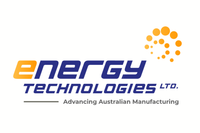How ESG Investing Can Produce Higher Returns with Less Risk
ESG investing best fits socially conscious investors looking for ESG companies focused on environmentally friendly practices to benefit from carbon credits.
Investing in companies based solely on in-depth financial analysis isn’t the only way to evaluate a company these days. Environmental, social and governance (ESG) investing is a trending investment strategy in which an investor assesses a company’s social presence as it relates to profitability and future returns before making an investment decision.
In 2020, the total worldwide. According to Bloomberg, global ESG assets are on track to exceed $53 trillion by 2025 –– showing no sign of slowing down any time soon. Some of the top ESG stocks, according to RBC Capital Markets, include large companies like Salesforce (NYSE:CRM), Microsoft (NASDAQ:MSFT), NVIDIA (NASDAQ:NVDA) and Gilead Sciences (NASDAQ:GILD) — to name a few.
It is clear that ESG investing has a role to play for the more socially-conscious investors out there. Read on to learn more about the basics of ESG investing and why this trend continues to grow in popularity.
What is ESG investing?
ESG stands for environmental, social and governance. ESG includes a variety of actions and responsibilities that a company takes towards building a more sustainable future. ESG initiatives typically come in the form of company policies, dedication to best practices or responsible operations.
Environmental impact includes all investments that support preservation and conservation of the natural world including climate change, carbon emissions, air and water pollution, biodiversity protection, deforestation, energy efficiency, waste management and water supply.
Social impact includes all investments that support the people and communities affected by a company’s operations including customer satisfaction, data protection and privacy, gender and diversity, employee engagement, community relations, human rights and labor standards.
Lastly, governance issues include investments in standards in which the company operates by, including board composition, board diversity, board independence, audit committee structure, risk and governance committee structure, compensation committee structure, health & safety committee structure, anti-bribery and anti-corruption bodies, lobbying, political contributions and whistleblower schemes.
ESG funds and stocks reduce portfolio risk and increase returns
Portfolios that include ESG investments have proven to have greater long-term success than those that do not. Part of this is because ESG funds have had progressively higher returns on investment due to resilience in the face of conventional market disruptions. For example, companies with strong ESG track records had less stock price volatility than non-ESG companies during the COVID-19 pandemic.
Research has also found that ESG stocks produce similar if not better financial results than non-ESG stocks. According to Arabesque, the top quintile S&P 500 companies with ESG initiatives performed more than 25 percent better than the bottom quintile companies from 2014 to 2018.
This reduction in portfolio risk is believed to partly stem from the fact that ESG companies are less likely to be involved in controversies –– whether it be environmental, social or governance due to proactive management.
Environmental is the leading ESG factor
According to recent survey data, among all ESG factors, pollution and waste management ranked top in importance and support from ESG investors. Investor prioritization of pollution and waste management is likely linked to growing concerns around climate change. Both large and smaller companies have responded to this growing concern by either launching or shifting to green models.
Steelcase (NYSE:SCS) is a company that produces furniture and architectural elements. Steelcase minimizes waste through smart product designs that easily allow for product disassembly for use in refurbishing and recycling. Steelcase produces very little waste in addition to reducing pollution through the use of renewable energy and water efficiency.
Hewlett Packard (NYSE:HPE) has also established a recycling program that spans 73 countries and has collected and recycled 90 million kilograms of plastic. The initiative has substantially cut back on landfill waste and reduced heavy metal pollution. Hewlett Packard has also reduced its greenhouse gas emission and water consumption through the use of 100 percent renewable energy in its manufacturing process.
Northstar Clean Technologies (TSXV:ROOF,TSXV:ROOF.WT) is an emerging clean technology company focused on the recovery and repurposing of single-use asphalt shingles. The company has developed a proprietary design process at its Empower Facility in Delta, BC for taking discarded asphalt shingles, otherwise destined for already over-crowded landfills, and extracting the liquid asphalt, aggregate sands and fiber. Northstar’s mission is to become the leading shingle material recovery provider in North America, extracting 99% of the recovered components from single-use asphalt shingles that would otherwise be sent to a landfill.
Carbon credits for ESG investments
The Canadian government recently announced an upcoming Canadian Federal Greenhouse Gas Offset System that will provide carbon credits to a variety of industries. Companies with ESG investments will be well primed for successful carbon credit trading given the expected rising costs of carbon under the Trudeau government.
For companies with ESG-focused models, a federalized carbon credit system will not only provide additional working capital but can improve profitability, growth and ROI potential.
Takeaway
ESG is considered to be crucial to business success. Industries that have not adopted ESG initiatives have received criticism and pressure from various stakeholders. As ESG takes off with billions of dollars in investment, investors may find ESG companies to be of more interest, specifically ESG companies with a focus on environmentally-friendly practices that are well-suited to benefit from carbon credits.
This INNSpired article was written as part of an advertising campaign for a company that is no longer a client of INN. This INNSpired article provides information which was sourced by INN, written according to INN's editorial standards, in order to help investors learn more about the company. The company’s campaign fees paid for INN to create and update this INNSpired article. INN does not provide investment advice and the information on this profile should not be considered a recommendation to buy or sell any security. INN does not endorse or recommend the business, products, services or securities of any company profiled. If your company would benefit from being associated with INN's trusted news and education for investors, please contact us.
- 5 Things to Know About ESG Investing Today | INN ›
- Demystifying ESG to enhance value creation for miners - Investing ... ›
- Northstar Clean Technologies | INN ›
- Not All Lithium is Created Equal: The Importance of Sustainability in ... ›
- Sustainability via Repurposing of Single-Use Products in the Construction Industry | INN ›



